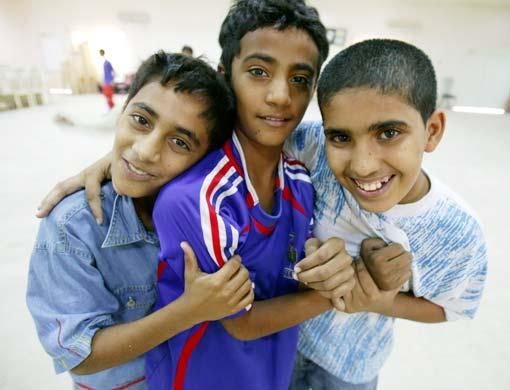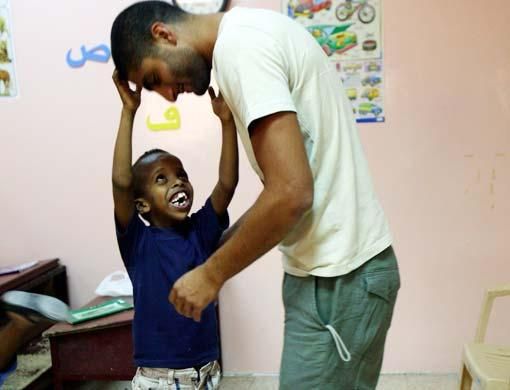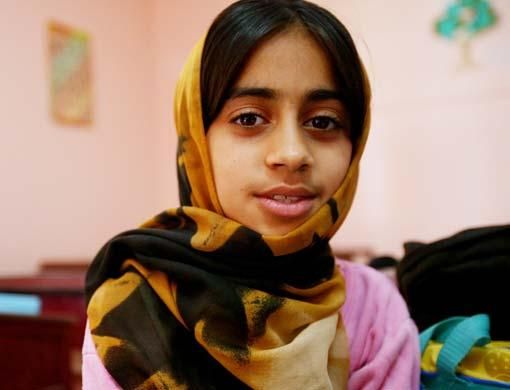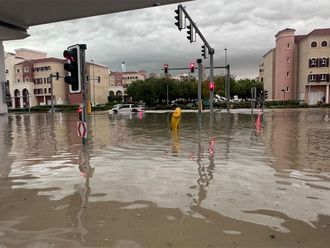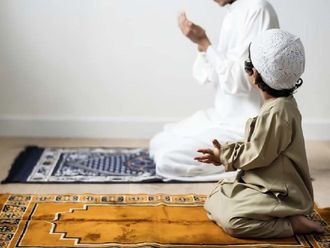Dubai: Mariam Abdul Kareem sits in the classroom looking attentively at her English teacher. This diminutive child looks younger than her ten years despite the colourful scarf wrapped around her hair, and her command of English belies her age.
Her teacher is proud to introduce her as one of the most talented students in the class.
“I am here because I want to work on my English and Arabic pronunciation.
“I already speak Balochi, and my Arabic and English is very good. I also understand Urdu. Eventually I would like to be a doctor,'' she says.
Mariam is the only girl and youngest in a family of six children, living in Umm Al Quwain with her grandparents, uncles, aunts and mother.
Their father passed away so long ago that she does not remember him. This bright young girl and her brothers, who were born in the UAE to a family originally from Iran, are all considered orphans, or yateem, under the Islamic definition of the term.
“I never saw my father. It is just my mother looking after my brothers and me,'' she said. “We also live with my grandparents, but my grandfather cannot see because he is very old and my grandmother has a heart problem and can't leave the house.''
Unique opportunity
Like many children throughout the UAE, Mariam said she enjoyed her summer holiday, playing with friends and learning.
However, Mariam and her 27 fellow-students share one commonality: they are all orphans from very low-income families, who through the dedication and hard work of a group of young UAE residents were given a unique opportunity and space to learn and express themselves this summer.
“We were inspired to set something up after we heard about an elderly national woman, Umm Fatima, who devotes herself to looking after people even though she herself is not very well off,'' said Lina Al Salhi, 23, one of the organisers of the Unique Orphans Summer School.
“We wanted to do more than just give money. We wanted to help and train these children in something that would be beneficial to them in the long term.''
Lina said they chose to work with orphaned children because they are among the most vulnerable in society.
“Their mothers are so thankful for what we are doing and we try to involve them as well. Many of the mothers are illiterate, so they can't really help with the classes, but they do what they can.
“We eventually would love to see these children graduate from university and be able to be successful members of their wider community. “This is our long-term aim.''
The children at this year's summer school are aged from 6 to 13, and organisers hope to expand their activities in the future to take in more children like 7-year-old Abdul Rahman Mahmoud Haji.
This gregarious little boy talks proudly about his large family of seven children. Despite his age, he is aware that his family changed after his father died.
“My mother is alone with us and she does not work. My eldest sister works as a secretary to support my family,'' he says.
“When I grow up, I would like to be a policeman in Dubai to look after them.''
Terminology
Laqeet: Abandoned children
Yateem: Orphaned children who have lost their father or both parents.
According to the UAE Red Crescent Authority (RCA), there are approximately 7,000 orphans (yateem) in the UAE, both nationals and foreigners. The organisation estimates that there are 2,000 UAE national orphans.
Agencies responsible for orphans in Emirates
Dubai — Dubai Orphanage, overseen by the Government of Dubai
Abu Dhabi — Dar Zayed Orphanage
Ajman — Human Appeal International
Sharjah — Sharjah Social Empowerment Organisation (Tamkeen)
Profile of an organisation
Tamkeen
According to Tamkeen — a part of Sharjah Humanitarian Services City and managed by Shaikha Jameela Bint Mohammad Al Qasimi —
the organisation is currently supporting 1,300 UAE national and expatriate orphans in Sharjah.
Most of the orphans supported financially and socially by the organisation have lost their father, but live with their mother or relatives.
By Basma Al Jandaly, Staff Reporter


